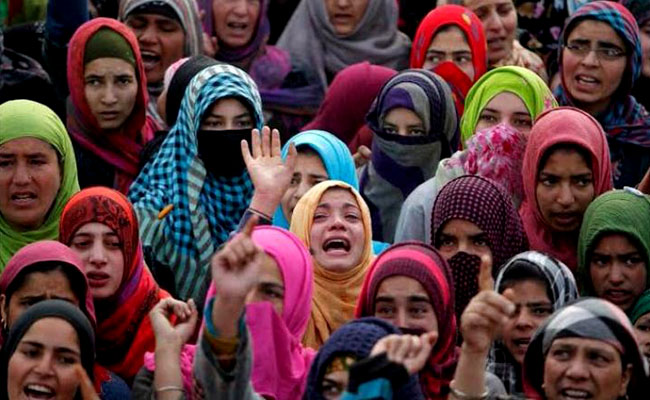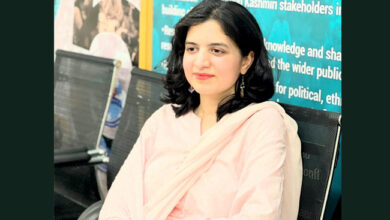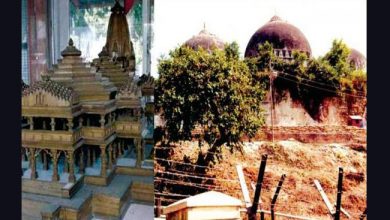Empowered Voices: Kashmiri Women Pioneering Resistance and Resilience in IIOJK

Written by: Dr Abida Rafique, Research Officer CISS AJK
ABI186@YAHOO.COM
The resistance movement within Indian Illegally Occupied Jammu and Kashmir (IIOJK) has been significantly and diversely influenced by Kashmiri women. Despite the difficulties and complexity of the struggle, women in Kashmir actively participate in various facets of the resistance movement, thereby strengthening the socio-political fabric and resilience of the area. Kashmiri women play crucial roles as agents of resistance and change amid political unrest, conflict-related violence, and human rights concerns. Their engagement takes on diverse forms, reflecting their agency and the specific challenges they face in the volatile environment.
One prominent aspect of Kashmiri women’s resistance is their role as activists and advocates. Using their voices to draw attention to the plight of the Kashmiri people, women have been at the forefront of civil society movements. They address issues such as extrajudicial murders, human rights violations, and the impact of militarization on the civilian population. Noteworthy advocates for justice and rights include Parveena Ahangar and Asiya Andrabi, demonstrating the tenacity and resolve of Kashmiri women. Parveena Ahangar, the founder and chair of the Association of Parents of Disappeared Persons (APDP), has been an outspoken campaigner for the rights of families who have lost loved ones in the Kashmir struggle. Particularly advocating for those who vanished under suspicious circumstances, Ahangar has dedicated her activism to securing recognition, justice, and accountability for the families of the missing.
Asiya Andrabi, an activist and leader in the separatist movement in Kashmir, is renowned for supporting the rights of Muslims in the region. Advocating for the implementation of self-determination for the people of Kashmir, she stands as a prominent opponent of Indian rule in Jammu and Kashmir. Despite legal challenges resulting from her political actions, Andrabi remains steadfast in her activism, with ties to groups like the Kashmiri women’s organization Dukhtaran-e-Millat (Daughters of the Community). Beyond advocacy, women in IIOJK actively participate in community mobilization and organization. Anjum Zamrud Habib, a political activist and the Chairperson of the Muslim Khawateen Markaz in Kashmir, underwent a tumultuous experience in 2003 when she was arrested and subsequently confined to Tihar jail for a rigorous five-year imprisonment term. During her incarceration, she endured years of distressing torture and trauma within the “high-risk” ward of Tihar Jail, leading her to recount her ordeal in the book titled “Prisoner no 100: The Story of Ordeal in Indian Prison” (2014). Originally scripted in Urdu as “Qaidi No100” in 2009, the book has been translated into English and Hindi, offering a multilingual perspective on her challenging experiences in Indian prison.
They provide crucial support to families impacted by the conflict, express solidarity, and establish networks of mutual support. Figures like Ms. Shabnam Lone, a Kashmir-based lawyer and human rights advocate, actively engage in legal advocacy focused on issues related to the Kashmir dispute, justice, and human rights violations.
Kashmiri women play a pivotal role in both the public and private spheres, often bearing the brunt of the conflict’s effects on their families. Many have assumed de facto head-of-household roles due to the detention or death of male family members, managing the challenges of daily life in a conflict zone. Furthermore, women actively participate in Kashmiri culture, employing artistic forms of resistance such as poetry, music, and art to express the aspirations, pain, and resilience of the Kashmiri people. Renowned poet Zeenat Aman captures the cultural and emotional aspects of daily life in the conflict-ridden area through her poetry, preserving the identity and legacy of the Kashmiri population.
In the realm of music, singer Nighat Sahiba’s songs convey the spirit of Kashmiri culture and serve as a vehicle for expressing the people’s sentiments regarding love, grief, and the sociopolitical context of Kashmir. Mahjabeen Nisar, writing under the pen name Kashmiri Lal, explores socio-political issues through her poetry, establishing a strong connection with the region and its inhabitants. Essar Batool, a notable woman, not only brought attention to a well-known incident but also contributed to literary manifestations of resistance. The book “Do You Remember Kunan Poshpora?” co-written by her sheds light on the 1991 mass rape of women at Kunan Poshpora.
In IIOJK, Kashmiri women shape and influence the resistance struggle despite obstacles and the often-overlooked nature of their participation. Their diverse tasks, emphasizing their agency in adversity, include community building, advocacy, and cultural expression. The resilience and resolve of Kashmiri women underscore their vital role as pillars of strength within the resistance narrative, significantly contributing to the broader struggle for justice, rights, and self-determination in the area.





